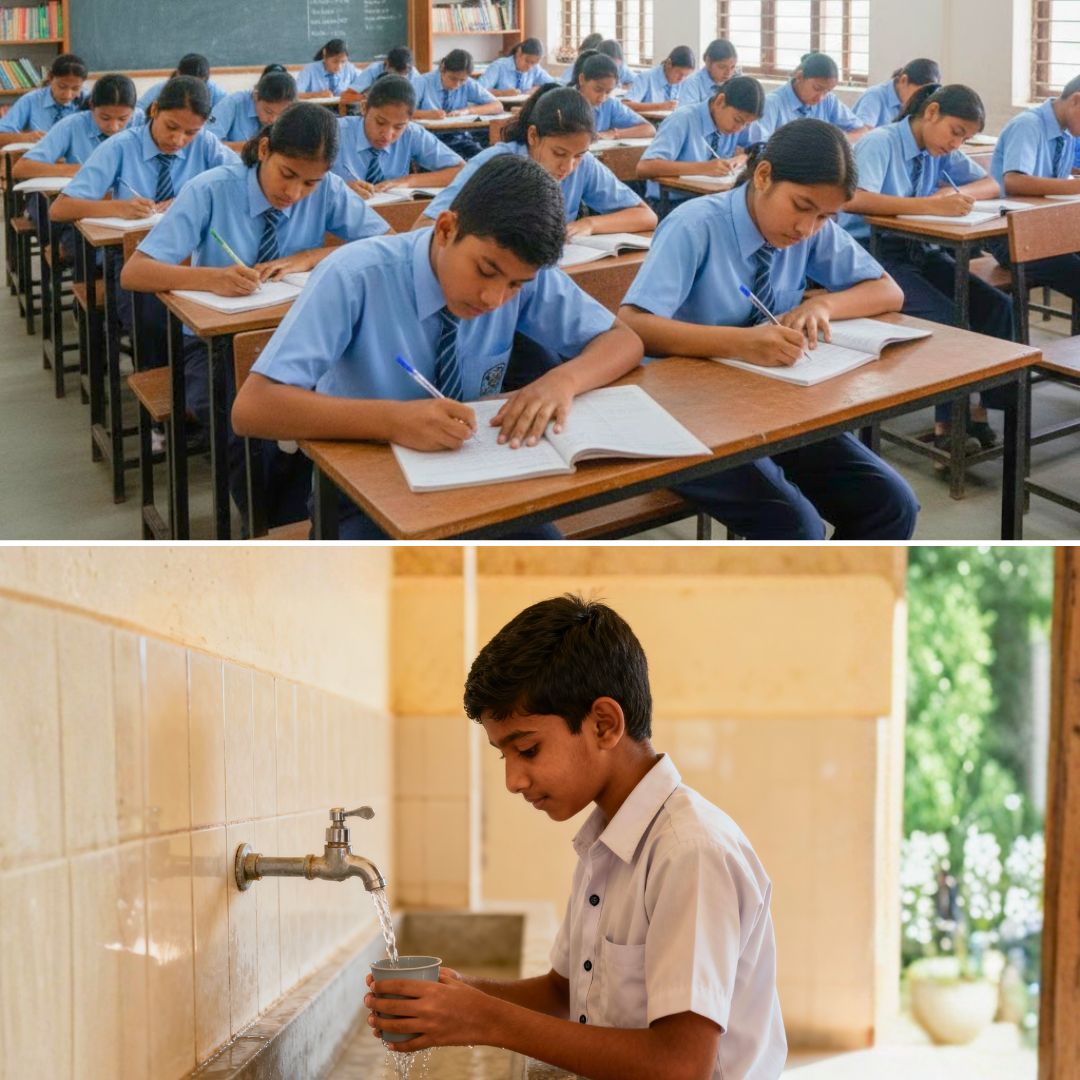Nearly 1,400 government schools in Assam’s char and rural areas lack basic drinking water and toilet facilities, while approximately 28,000 teaching posts across primary and upper primary levels remain vacant.
Education Minister Ranoj Pegu informed the state assembly about the severe infrastructure and staffing gaps, highlighting the challenges faced by students, especially from marginalised communities.
The government is actively working to fill vacancies and restore essential facilities to improve education in underserved regions.
Severe Infrastructure Deficits
Assam’s interior and rural schools face significant infrastructural challenges, with 347 schools lacking any drinking water supply and 809 schools completely devoid of toilet facilities.
Furthermore, several schools have non-functional amenities, with 134 schools lacking operable drinking water and 101 schools without functioning toilets.
These deficiencies impact health, hygiene, and attendance, with girls being particularly vulnerable. The issue reflects systemic neglect and the geographical hardships of riverine and char areas where communities struggle to access basic services.
Teacher Vacancies and Recruitment Efforts
The shortage of teaching staff exacerbates the crisis, with 27,936 posts vacant across the region. Middle English schools face the largest deficit with 12,382 vacancies, followed by 8,251 in Lower Primary and 7,303 in Upper Primary schools. This strains the existing workforce and adversely affects education quality.
The state government has initiated recruitment for 4,500 Lower Primary teachers, with document verification underway, and recently completed hiring 9,717 teachers for various schools. However, filling all gaps remains a formidable challenge, requiring sustained efforts.
The Logical Indian’s Perspective
Education forms the foundation for equitable social development and empowerment. Assam’s persistent infrastructure and staffing gaps in rural schools highlight urgent developmental deficits needing compassionate, focused attention.
The Logical Indian advocates for inclusive policies, community participation, and transparent governance to ensure every child can access quality education with dignity.











